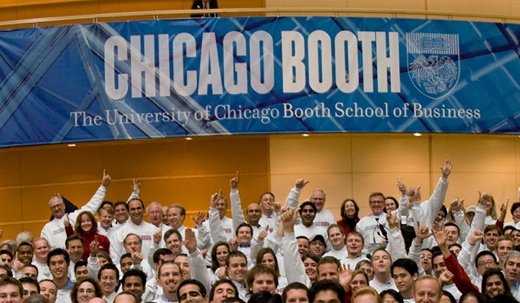Ever wondered how to make your past shine in your MBA applications? When tackling Booth MBA application essays, you must connect the dots between what you’ve done and what you’ll bring to the classroom.
Your past isn’t just a list of jobs—it’s a treasure chest of insights that can set you apart from other applicants.
Why Your Past Matters to Business Schools?
Business schools don’t just want smart people—they want contributors who will enrich the learning experience. Your unique background shapes how you solve problems, work in teams, and see the world.
When admissions teams read about your experiences, they imagine you in study groups, classroom discussions, and student clubs. They ask, “What will this person add to our community?”
Remember this: Every experience you’ve had—good or bad—has taught you something valuable from which your classmates can learn.
Finding Your Transferable Skills
Your work history contains skills that will benefit your MBA community, even if they come from completely different industries.
| Professional Background | Transferable MBA Contributions |
| Marketing professional | Consumer behavior insights, creative problem-solving, communication skills |
| Engineer | Analytical thinking, process optimization, technical perspective on business problems |
| Non-profit worker | Social impact perspective, resource maximization, stakeholder management |
Connecting Personal Experiences to MBA Value
Your background matters just as much as your professional one. Maybe you:
- Lived abroad and gained cross-cultural communication skills
- Overcame personal challenges that built your resilience
- Pursued unique hobbies that developed your creativity
These seemingly unrelated experiences often provide the most memorable contributions to MBA discussions.
How to Map Your Experiences to MBA Contributions?
Start by asking yourself these questions:
- What unique perspective did I gain from this experience?
- How did this experience change how I approach problems?
- What did I learn that might surprise my classmates?
Write down your answers. You’ll start seeing patterns in your experiences that reveal your unique value.
Crafting Your Connection Story
When writing your essays, avoid simply listing what you’ve done. Instead, follow this approach:
- Share a specific experience that shaped you
- Explain what you learned from that experience
- Connect that learning to how you’ll contribute at business school
For example:
“Managing a team through our company’s unexpected downsizing taught me how to maintain morale during uncertainty. At Booth, I’ll bring this perspective to our Crisis Management course discussions and to my leadership role in the Consulting Club.”
The Authenticity Factor
Be genuine in your connections. Admissions officers read thousands of essays and can spot forced connections immediately.
If you can’t honestly connect an experience to your MBA contributions, don’t include it.
Your authentic voice is far more compelling than what you think admissions wants to hear.

Looking Forward: From Past to Future
Your past experiences aren’t just credentials—they predict your future impact. When describing what you’ll contribute, be specific about:
- Classroom discussions you’re qualified to enhance
- Club initiatives you could lead or support
- Campus culture elements you would strengthen
Common Mistakes to Avoid
Many applicants fall into these traps:
- Being too general: “I’ll contribute my leadership skills” (Instead, specify how and where)
- Focusing only on career achievements: Your journey matters too
- Overlooking informal experience: Volunteer work, family responsibilities, and hobbies all count
Final Thoughts: Making Your Essay Stand Out
The most compelling Booth MBA application essays show a clear thread from where you’ve been to what you’ll contribute.
Don’t just tell your story—show how your story will enrich the MBA experience for everyone around you.
Your past is unique. No other applicant has lived your exact life or learned your actual lessons.
This isn’t just your competitive advantage—your contribution to the diverse learning environment makes business school so valuable.






